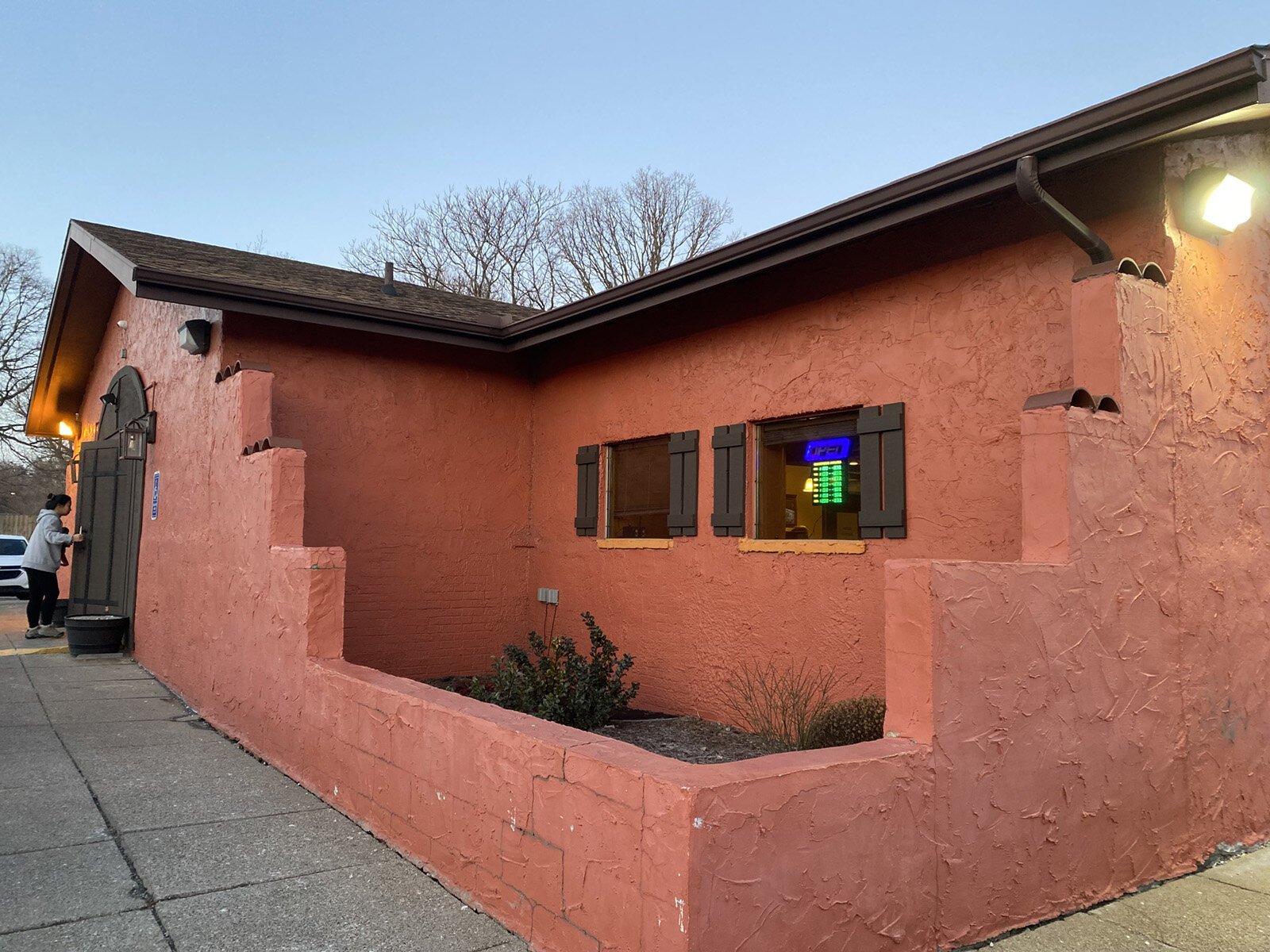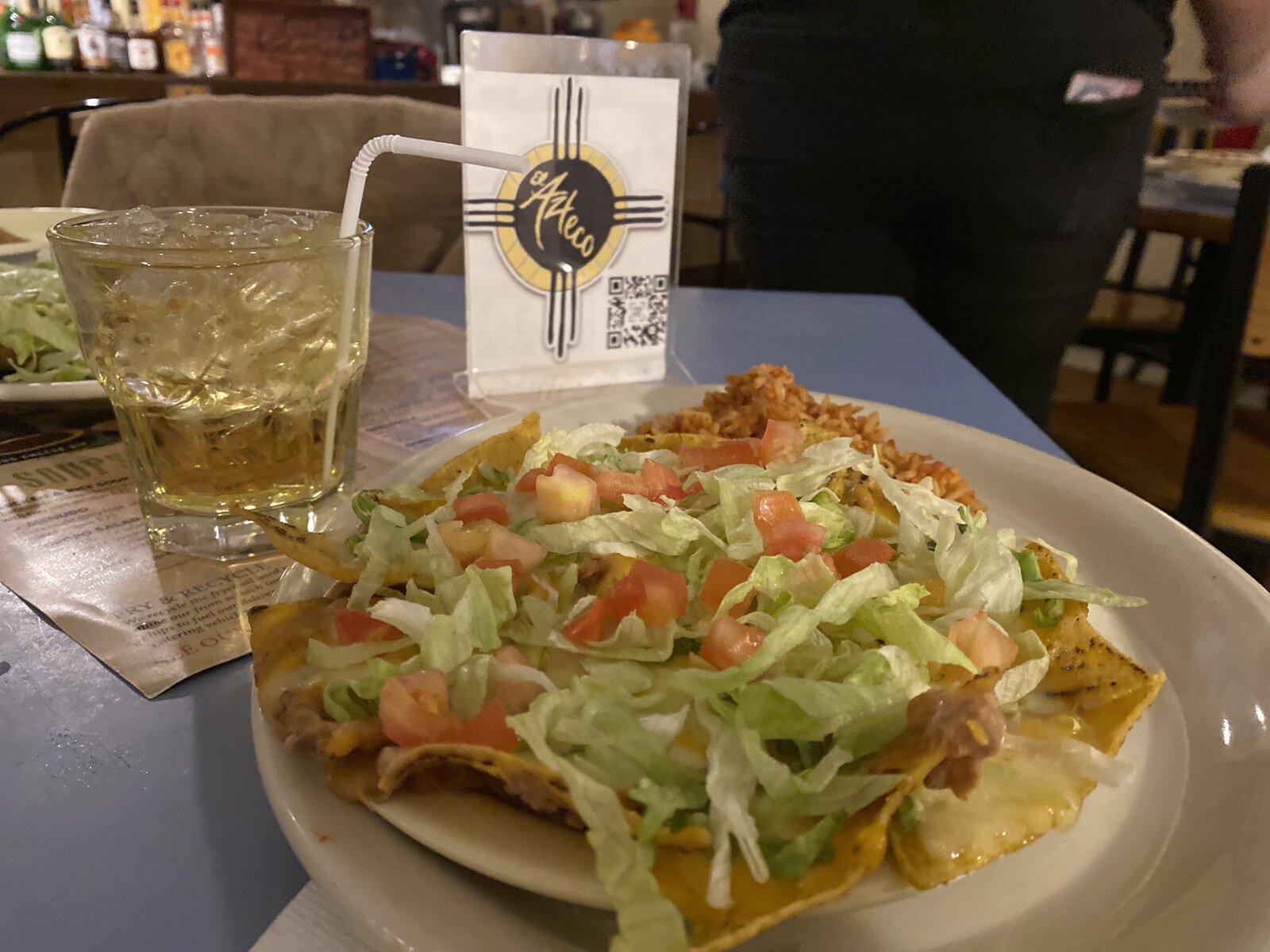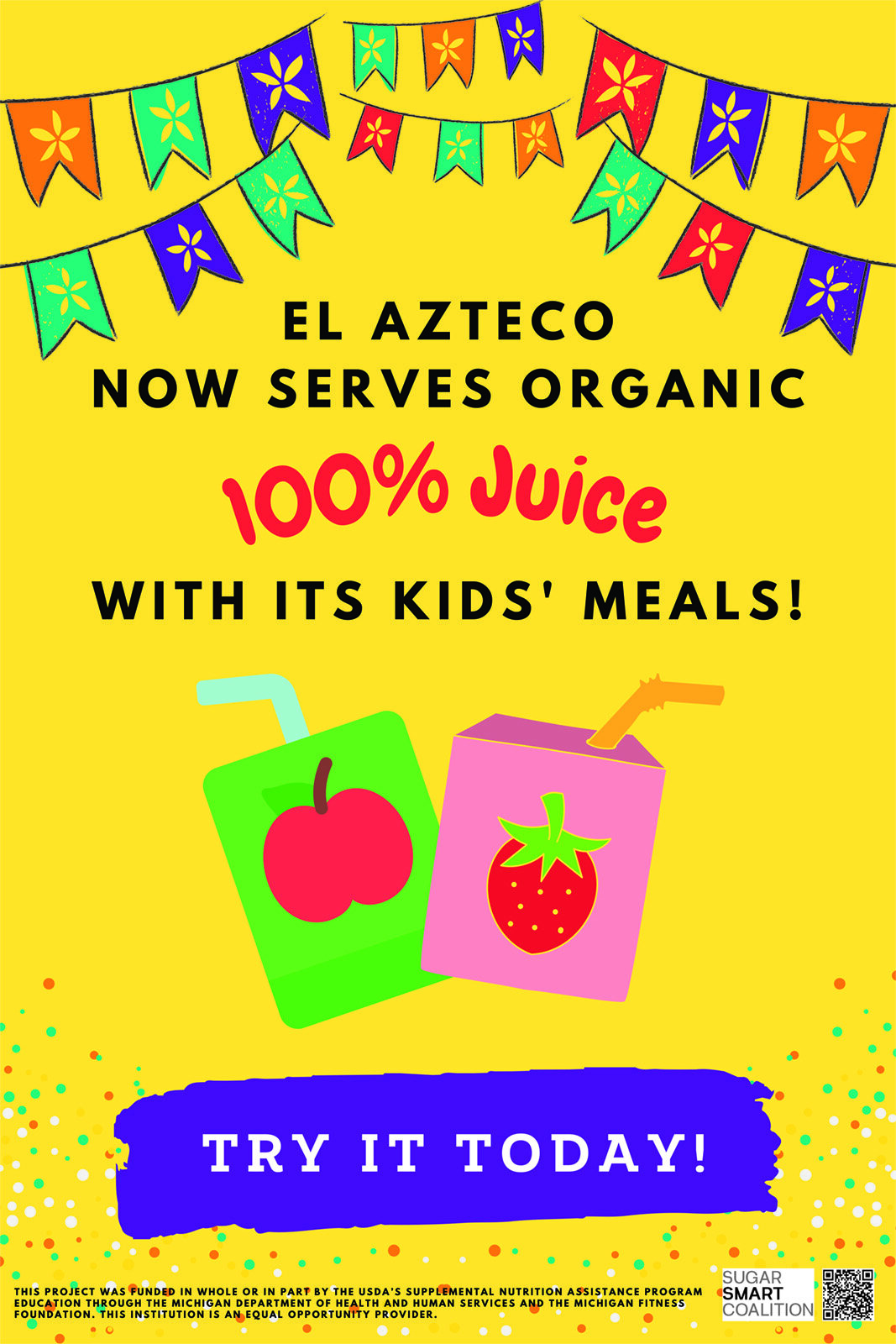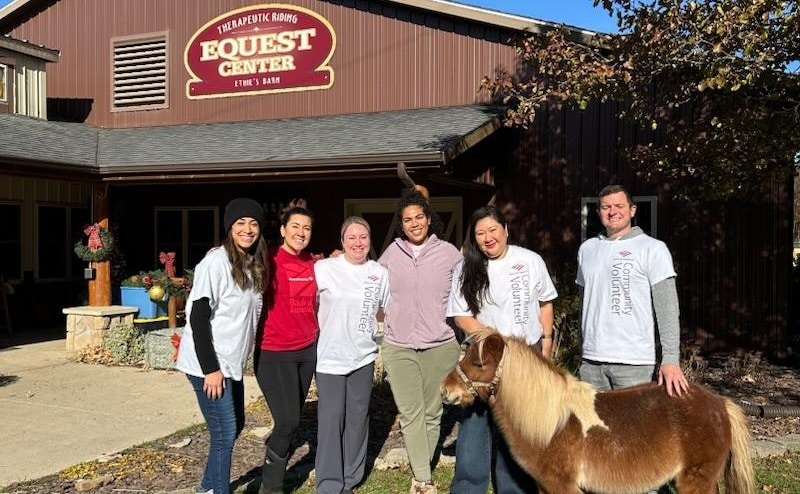Partner Partner Content NorthWest Initiative collaborates with community to create a healthier Lansing
NorthWest Initiative offers food distribution, community gardens, nutrition education, cooking programs, school-based gardens, and a mobile farmers market.

This article is part of Stories of Change, a series of inspirational articles of the people who deliver evidence-based programs and strategies that empower communities to eat healthy and move more. It is made possible with funding from Michigan Fitness Foundation.
NorthWest Initiative (NWI) is a nonprofit that offers a wide range of programs to strengthen and support healthy living for people in the downtown, northside, and westside neighborhoods of Lansing. Examples of their outreach include food distribution, community gardens, nutrition education, cooking programs, school-based gardens, and a mobile farmers market.
This work is funded in part by Michigan Fitness Foundation (MFF). MFF is a State Implementing Agency of the Michigan Department of Health and Human Services for the education component of the Supplemental Nutrition Assistance Program (SNAP). SNAP-Ed is an education program of the U.S. Department of Agriculture that teaches people eligible for SNAP how to live healthier lives. MFF offers grants to conduct SNAP-Ed programming throughout the state of Michigan.
Part of NWI’s SNAP-Ed work focuses on policy, systems, and environmental change (PSE) initiatives. Their PSE initiatives are designed to assess and address community needs. PSE work involves collaboration across multiple organizations and funding sources. The common thread is that all of the organizations come together to achieve a similar goal, such as helping residents access affordable, delicious, healthy foods and safe places to be physically active.
For example, one of NWI’s SNAP-Ed PSE initiatives is to improve healthy food and beverage choices. Through their work with the Sugar Smart Coalition (SSC), they reach out to local restaurant owners, managers, and staff to see if there is interest in collaborating on ways to reduce sugary drink consumption for children by changing the children’s menu offerings.
With SNAP-Ed as the catalyst, the coalition’s first success was with the restaurant El Azteco West. El Azteco is a well-known family restaurant in the area. They opened their first location in East Lansing in 1976 and the West Lansing location opened in 1977. They introduced the community to traditional Mexican dishes with tortillas made fresh in their Lansing factory.

“We started approaching restaurants we thought might be interested in making changes to their children’s menus,” says NWI Executive Director Peggy Vaughn-Payne. “El Azteco West Manager Maria Quiroz was on board with the concept and became an advocate for our work.”
Now, El Azteco offers 100% organic fruit juice on their children’s menu. As El Azteco’s new kids’ menu explains, 100% organic juice means that everything in the juice container comes from a fruit or vegetable with no added sugars or other ingredients.
This aligns with the 2020-2025 Dietary Guidelines for Americans, which promotes nutrient-dense 100% fruit juices as a fruit serving that is a part of a healthy diet.
The American Academy of Pediatrics (AAP) issued a policy statement that also provides guidelines about providing juice to children. AAP says juice should not be introduced into the diet of infants before 12 months of age and the intake of juice should be limited to up to 4 ounces/day in toddlers 1 through 3 years of age, and 4 to 6 ounces/day for children 4 through 6 years of age. For children 7 to 18 years of age, they say juice intake should be limited to 8 ounces or 1 cup of the recommended 2 to 2.5 cups of fruit servings per day with the remaining fruit being whole fruit.

“We shared examples of children’s menus that offered healthy drink options to give the El Azteco team an idea of what other restaurants are doing and how a small change could make an impact on children’s health,” says NWI PSE Project Coordinator Jane Kramer.
Kramer worked with Quiroz on the menu changes and was thrilled with her enthusiasm. She says Quiroz researched 100% juices and had her own kids test them. El Azteco then updated their menu with the new beverages and even added colorful posters at the entrance to the restaurant and in select areas of the dining areas to highlight the offerings.
“The exciting thing is as we approach other restaurants, we can use the El Azteco menu and poster as an example for what is possible,” Kramer says. “Having those visuals is really important. It helps them understand what an impact they can make.”

As a part of the PSE work, parents and guardians from two elementary schools were invited to provide feedback regarding El Azteco’s new children’s menu and if they would support other restaurants adding healthy default drinks to their menus. The discussion also sought to explore specific ways NWI, and the Sugar Smart Coalition, could facilitate that change in a way that honored their wants and needs as parents and guardians.
Because they integrate community voices to inform their work, NWI’s mission to strengthen the health of the residents in the neighborhoods they serve is made stronger.
“Through our SNAP-Ed work, we are teaching people how to live healthier lives across the age span. We’re working in with other organizations, in schools, and community settings including restaurants,” Vaughn-Payne says. “Our goal is to improve the overall health of our community.”









